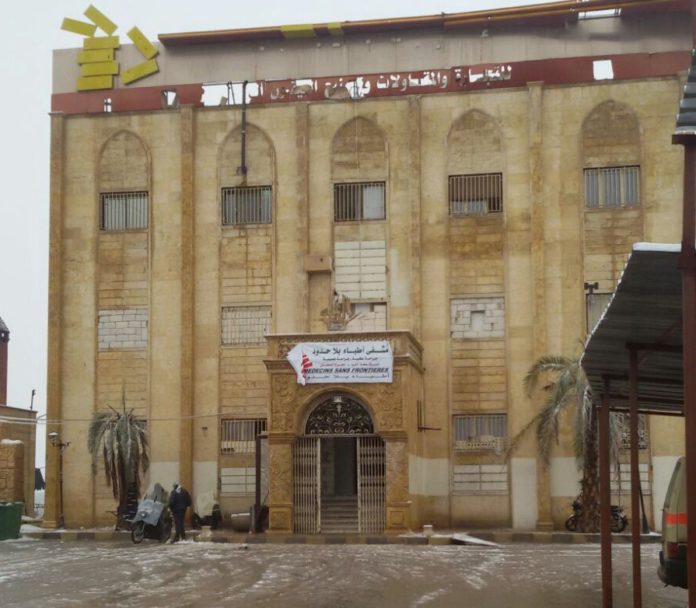MSF demands end to ‘deliberate’ attacks on hospitals in Syria

Doctors Without Borders/Médecins Sans Frontières (MSF) is demanding an independent investigation into a hospital the group was supporting in northern Syria, after it was destroyed in an aerial attack Monday.
President of Médecins Sans Frontières Dr. Joanne Liu said in a statement released Thursday that the attacks on civilian infrastructure across the country are deliberate, and that the Syrian regime is using a strategic type of aerial attack that maximizes emergency worker casualties.
A missile attack on an MSF facility in Ma’arat Al Numan, in the Idlib province of northern Syria, left 25 people dead.
“This attack can only be considered deliberate. It was probably carried out by the Syrian-government-led coalition that is predominantly active in the region,” said Liu. “We say loud and clear: the doctor of your enemy is not your enemy.”
MSF documented the rise in attacks on their medical facilities in the country in a new report, but is quick to point out the Syrian regime is not the only county responsible for the uptick in violence.
In 2015, Russia intervened in the country in September on behalf of the Syrian government, significantly upping the power of its air force. France and the UK extended air campaigns as part of the U.S.-led coalition from Iraq to Syria in September and December, amounting in an “unprecedented” situation where “four of the five permanent members of the UN Security Council are now actively engaged in hostilities in the Syrian conflict.”


The new report also documents use of so-called “double tap” strikes targeting MSF hospitals, where the building is bombed and then a short time later when emergency responders are on the scene, it is targeted a second time to maximize casualties. This is what is believed to have happened in the most recent strike.
An assessment of attacks on healthcare facilities in Syria in 2015 revealed a “worrying number” of double-tap attacks across the country.
Their data revealed a total of 94 aerial and shelling attacks on MSF-supported facilities, with 12 cases leading to the total destruction of the hospital or health care center. Eighty-one medical staff working for the group were killed over the course of the year, but MSF noted that they only support a fraction of the medical facilities in the country, so the death toll for healthcare workers across the country was much higher.
MSF-supported facilities alone reported 7,009 deaths and 154,647 injured in 2015, with 30% to 40% of those killed being women and children.
The group created a graphic based on the new report that shows just how widespread the attacks on healthcare facilities in Syria were last year.
Healthcare in #Syria is in the crosshairs of bombs and missiles. It has collapsed. pic.twitter.com/rljYeZJnzl
— MSF International (@MSF) February 18, 2016
Liu called the most recent attack the destruction of a “lifeline” in the city of Ma’arat Al Numan.
“Let me be clear: attacks on civilians and hospitals must stop. The normalization of such attacks is intolerable,” said Liu, in a statement released Thursday. “This cynical destruction of hospitals and killing of medical personnel deprives entire communities of critical medical care.“
MSF is only able to function in areas of the country controlled by the Syrian opposition, because the government has refused permission for it to provide medical aid in the country since the civil war began in 2011.
Because of fears of being targeted, MSF does not provide the coordinates of all of their locations to the Syrian government. After the latest strikes, MSF operations director Isabelle Defourny said she expects medical staffers in the country will now ask that their locations be specified to government officials, a practice that the organization has struggled with for some time.
“It was a huge discussion inside MSF and mainly with the medical directors of the health facilities that we support inside Syria,” Defourny added. “The staff of the hospital (and) the director of the hospital didn’t know if they would be better protected if they give the GPS or not.”
Providing the coordinates has not always protected hospital staff and patients in the past. In the case of the deadly U.S. airstrike in October that destroyed a MSF hospital in Kunduz, Afghanistan, the hospital location was reported to both U.S. and Afghan forces and was still not spared.
Additional information from the Associated Press.
Have something to add to this story? Share it in the comments.
